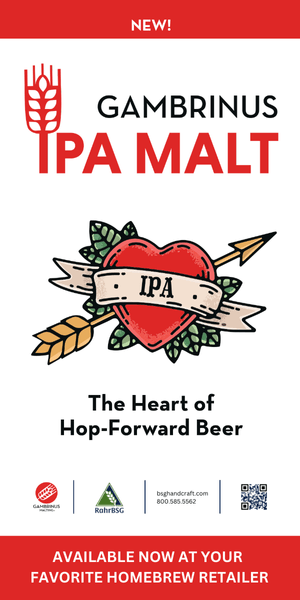Petit Saison
The inspiration for this beer was a play on De Baets’ remarks that traditional saisons were low gravity and heavily hopped. When it was still brewed with the Rodenbach strain, De Ranke’s XX Bitter was a rough approximation of a traditional saison, but with its cleaner character today you’ll have to brew your own for a taste of history. This recipe makes for a refreshing summer beer with the gravity dialed down and aromatics pushed to the fore.






